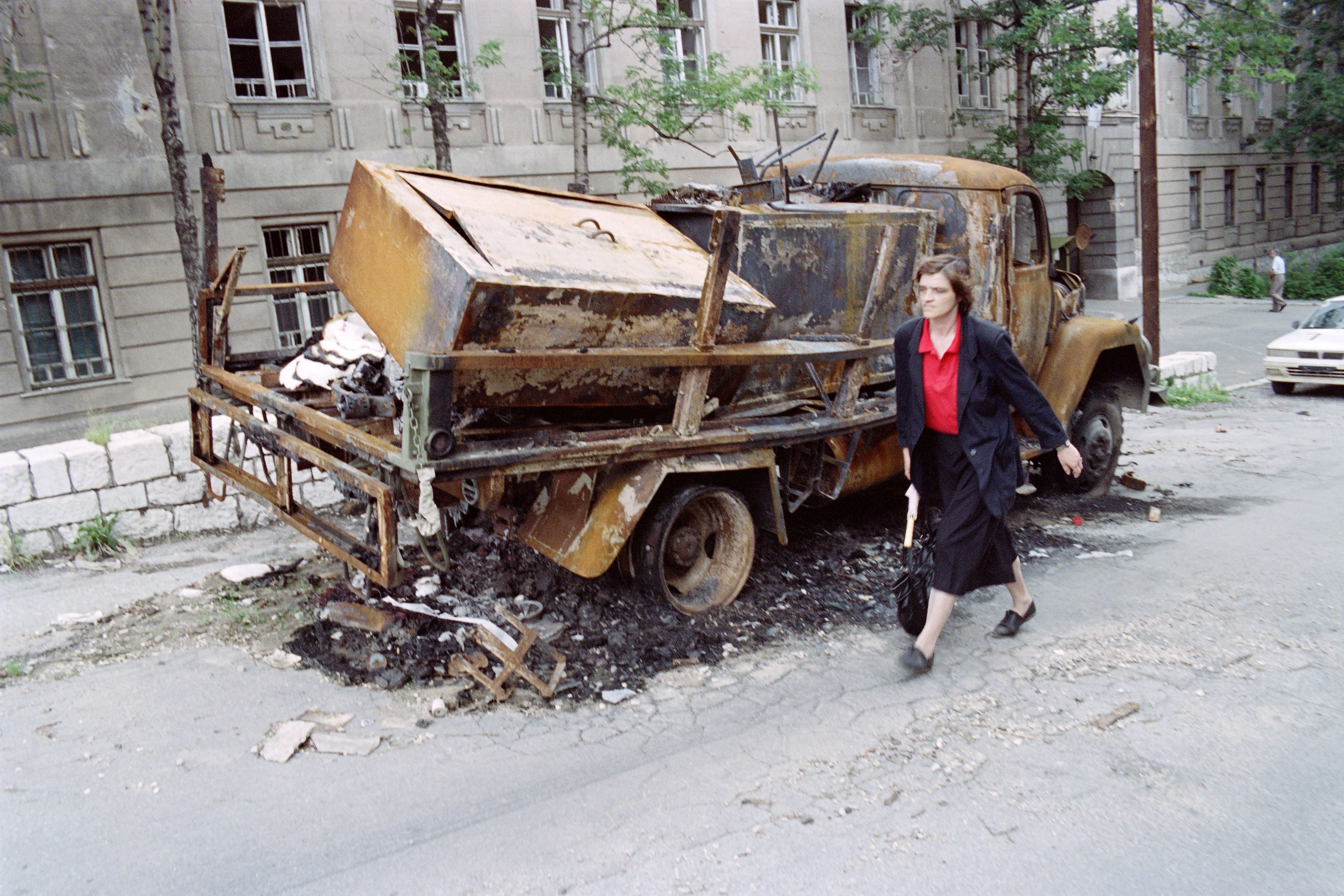Under attack – the hospital doctor blind to ethnicity
17 December 1992: Robert Fisk reveals the plight of Stolac, a village that fell victim to war


Stolac was a pretty little village. The walls of its old Turkish fortress still glower over the broken mosque. A clutter of looted boutiques stand beside a stream which chuckles down to the Neretva.
A few days ago, just along the road, they unceremoniously exchanged the bodies of a few fighters, the Croats booting a cluster of Serb bones into a plastic sack to taunt the Serbs – who contemptuously kicked a severed Croat head into a bodybag.
The Serbs shell the local hospital. The Croats claim it no longer exists, a final lie intended to seal the fate of Stolac. So much for the 120 people inside, Muslims and Serbs and Croats, patients and staff, the very last bit of old Yugoslavia left in the valley of the Neretva.
Old Dr Mehmed Kapic is their father-figure, trained in orthopaedics. Invariably, he dresses in a long, black cape, stalking his shell-spattered wards like an elderly Zorro. His “family”, as he calls his patients and staff, are either too sick or too frightened to leave. So they live together in mutual affection and terror.
The wards are cold, the window frames sealed with sandbags and plastic sheeting. There is a smell of urine and dirt but the elderly wounded of Stolac smile bravely in their misery. Kapor Obrat holds up an arm fractured by shrapnel. Kemal Medar suffered a heart attack during a bombardment. Huso Ratkucic damaged his spine after falling through the floor of his devastated home. Obrat is a Serb, Medar a Muslim, Ratkucic a Croat. Dr Kapic – a Muslim – pats each of them on the shoulder.
He says, in careful, old-fashioned French: “Politics is so stupid. Why should I be interested? I live in freedom because I am a doctor. I’m not interested in Serbs, Croats or Muslims. I am a healer. This gives me liberty. The people of our little town are now all here in my hospital. So now they have liberty because they are together.”
This is not a philosophy shared by those surrounding Stolac. Take the Serbs up on the ridge-line half a mile away. They mortar the village every day, kill the occasional stroller, spray shrapnel through the hospital. They are aiming at the HVO (Croatian Defence Council) soldiery who hold this sector on the Herzegovina front line. The Croatians have only a broken tank to defend this futile place but they have no time for the hospital. Why should the Serbs live? Why should they feed the Muslims? Why care about the Croats who choose to share the suffering of their fellow villagers?
Massive tree trunks have been placed against doorways to stop shells entering the building. Trees in the courtyard are already scythed by gunfire
When an inquisitive European Community observer demanded a trip into Stolac, the local Croatian commander insisted the hospital on his map had been closed long ago. Only when the EC man walked through the door were the Croatians forced to admit their error. Then it transpired the United Nations had been sending food to the village but that 90 per cent of it was taken by the Croatian army, only 10 per cent being handed to the hospital and that this small amount also had to feed the Muslims of neighbouring Capljina.
Muslims, of course, are in the majority in Stolac – which is why both Serbs and Croats are treating the villagers in so disgraceful a manner. To walk through the wards is to understand the shameful nature of these armies, the “warring factions” of UN parlance.
How can poor old Fadila Mehich, with shrapnel in her shoulder, be a danger to the integrity of the Serbo-Croatian war? Or 13-year-old Maya Premilovac, her leg fractured by a shell splinter, with her bright eyes and shriek of delight when Dr Kapic enters the ward?
“I think that we are attacked here in Stolac because we are Bosnia-Herzegovina,” Dr Kapic says. “We are together here without differences. So we are attacked. To eat, to survive, the patients and the staff must stay here now. The soldiers... [Dr Kapic does not choose to define which soldiers] would steal our food.
Which was precisely what they were doing. The EC monitors are sending diesel fuel into Stolac to run the hospital generator. Food from the UN High Commissioner for Refugees is arriving at last. But the Croats are demanding special passes from the international aid workers and suggesting visits may soon be suspended. Dr Kapic is more concerned about his hospital’s walls. Massive tree trunks have been placed against doorways to stop shells entering the building. Trees in the courtyard are already scythed by gunfire.
“What else can we do but stay together?” Dr Kapic asks as he sits in his office, the room piled high with old hospital registers, blankets, stretchers, medical books and two novels by George Orwell in Serbo-Croat. The first is Down and Out in Paris and London. The second, Tisucu Devetsto Osamdeset Cetvrta, translates as 1984.
Join our commenting forum
Join thought-provoking conversations, follow other Independent readers and see their replies
Comments